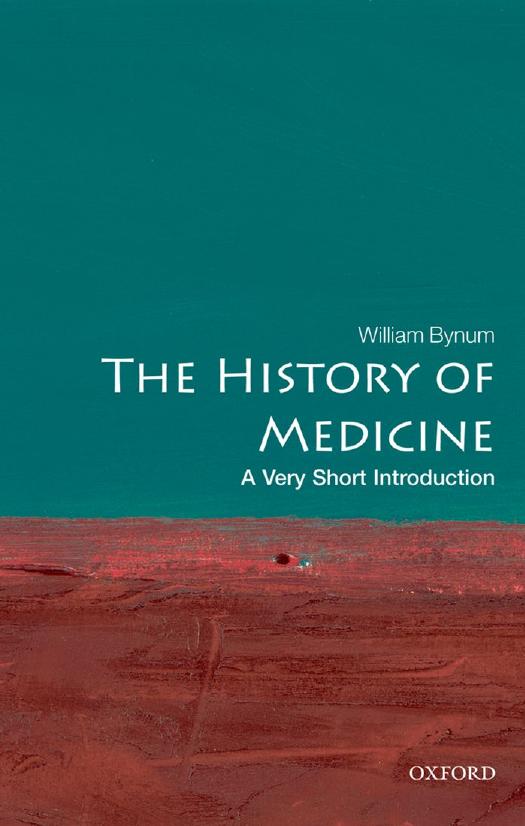The History of Medicine: A Very Short Introduction by William Bynum

Author:William Bynum [Bynum, William]
Language: eng
Format: epub, pdf
Publisher: Oxford University Press
Published: 2008-01-15T14:00:00+00:00
Establishing the public health bureaucracy
‘In the beginning was the Word’, St John’s Gospel has it. Now, there is mostly the number. We live by the clock, follow the ups and downs of the stock markets or mortgage rates, experience the hottest, or wettest, month since records began. Contemporary society is permeated with numbers; they rule our lives.
Public health evidence is inevitably numerical. If the public health movement was in large measure a product of the industrialization and urbanization that transformed the Western world from the late 18th century, it also relied on the numerical mentality that accompanied the profits and losses of the factory system, the harnessing of steam, double-entry book-keeping, and the national census. Like us, the Victorians felt overwhelmed with facts and data.
Three dimensions to the quantification of medicine (and society more generally) should be highlighted: surveys, surveillance, and significance.
The survey is the most basic. The 1832 Poor Law Commission has been described as the pioneering national survey, and it certainly was novel for its times. Chadwick and his fellow commissioners sent out a detailed questionnaire to each of the parishes responsible for Poor Law relief, and attempted to coordinate the replies. In the late 1830s, Chadwick commissioned surveys of the relationship between poverty, overcrowding, and filth diseases. One of the first acts of Chadwick’s successor as leader of the British Public Health Movement, John Simon (1816–1904), was a European-wide survey of vaccination and its effectiveness, in relation to the issue of enforcing compulsory vaccination. This survey convinced him that the way to prevent smallpox was to have an active policy of free vaccination. During his years in office, Simon gradually became disillusioned with persuasion as a tool to achieve public health ends, and under his leadership, Britain acquired a vaccination system that was publicly funded, free, universal, and compulsory, with penalties for non-compliance.
Throughout the developed world, during the middle decades of the 19th century, the power of the number became appreciated. Social issues with medical ramifications were repeatedly investigated by surveys. Issues of poverty, child labour, factory conditions, food adulteration, water supply, prostitution, building standards, and, of course, epidemic diseases, all came under scrutiny. Investigating one issue often threw up others that called out for attention. For instance, concern with the employment of young children in poorly paid and grinding jobs raised more general issues of education and child health. Charles Dickens’s Mr Gradgrind was not the only one in 19th-century Europe who wanted ‘the facts’, and ‘facts’ increasingly came in a table or other quantitative form.
Download
The History of Medicine: A Very Short Introduction by William Bynum.pdf
This site does not store any files on its server. We only index and link to content provided by other sites. Please contact the content providers to delete copyright contents if any and email us, we'll remove relevant links or contents immediately.
Good by S. Walden(3548)
The Social Psychology of Inequality by Unknown(3022)
The Checklist Manifesto by Atul Gawande(2849)
0041152001443424520 .pdf by Unknown(2843)
Get What's Yours for Medicare: Maximize Your Coverage, Minimize Your Costs by Philip Moeller(2646)
The Meaning of the Library by unknow(2565)
Guns, Germs and Steel by Diamond Jared(2366)
Borders by unknow(2304)
23:27 by H. L. Roberts(2248)
And the Band Played On by Randy Shilts(2199)
Being Mortal: Medicine and What Matters in the End by Atul Gawande(2122)
A Leg to Stand On by Oliver Sacks(2033)
The Hot Zone by Richard Preston(2013)
More Than Words (Sweet Lady Kisses) by Helen West(1860)
The Valachi Papers by Peter Maas(1847)
The Laws of Medicine by Siddhartha Mukherjee(1798)
The Andromeda Strain by Michael Crichton(1742)
Get What's Yours for Medicare by Philip Moeller(1695)
The Obesity Epidemic by Robyn Toomath(1673)
